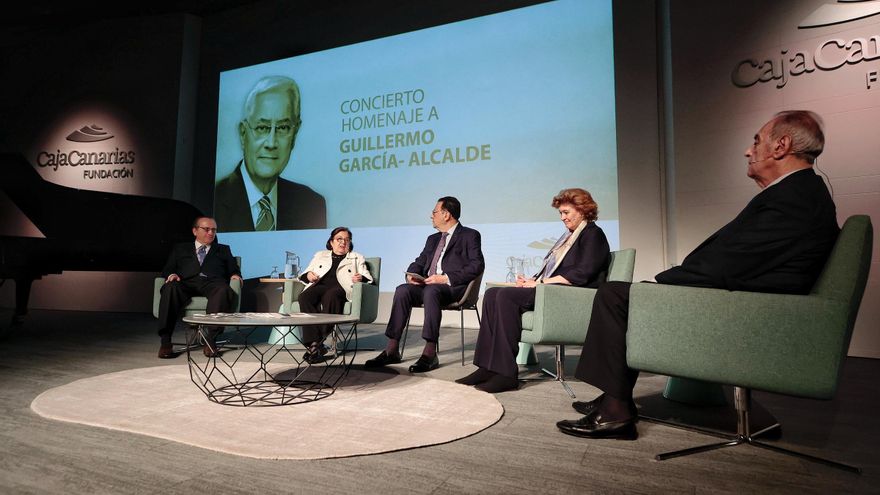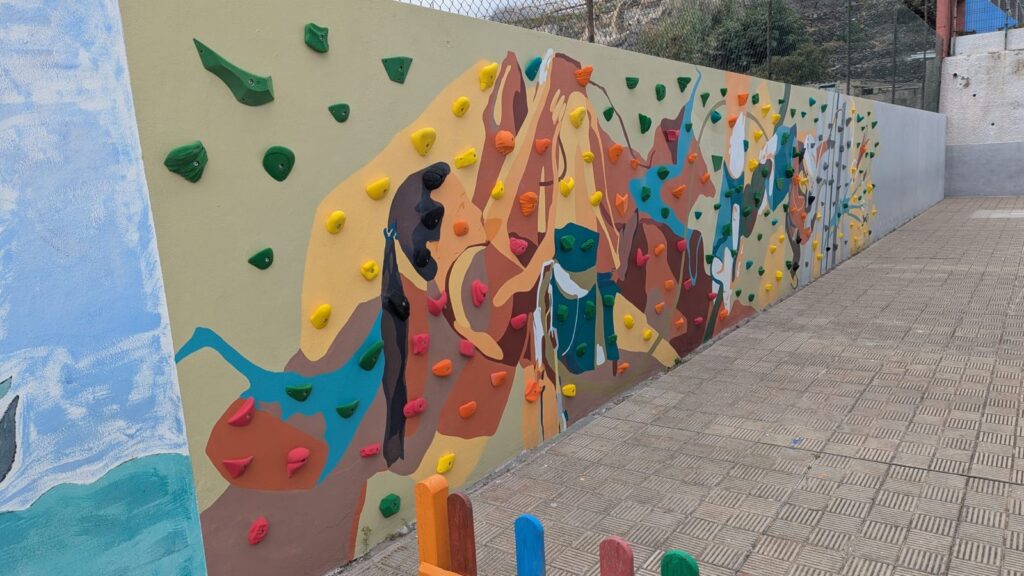
The CajaCanarias Cultural Space in Santa Cruz de Tenerife was the venue for a commemoration of Guillermo García-Alcalde, where his profound passion for music took center stage. Distinguished figures from the realms of culture and journalism, as well as his friends and family, gathered in the capital of Tenerife to reminisce about the journalist, critic, and musician who passed away last May. “His passing left in all of us the desire to pay homage to his multifaceted persona: he was a remarkable music critic and journalist. He approached everything with tremendous passion and the most fitting tribute he could have received is undoubtedly one encompassing music,” remarked Margarita Ramos, the president of the CajaCanarias Foundation, during the inception of the event, which was organized by the president of Musiespaña, Humberto Orán. The renowned Gran Canarian pianist, Iván Martín, commenced the musical segment of the event with two compositions. The first piece, 3 Preludes for Piano, was a creation by the Canarian composer Laura Vega, who was also in attendance. The second piece was Barcarolle op.60, by Chopin. Subsequently, there was a discussion about García-Alcalde’s figure and significance.
The gathering was graced by the presence of Javier Moll, the president of Prensa Ibérica (a media group with which he was associated until his retirement); the president of the Royal Canarian Academy of Fine Arts San Miguel Arcángel, Rosario Álvarez; the president of the Martín Chirino Art and Thought Foundation, Marta Chirino; and the director of the Royal Academy of Fine Arts of San Fernando, Tomás Marco. They collectively shared years of camaraderie and collaboration with the honoree, and shared memories and anecdotes with the audience.
Álvarez, who focused on the more musical aspect, highlighted the impact he had on “the Canary Islands in general and on the Academy in particular”. “He was an artist,” emphasized the musicologist and recipient of the Canary Islands Prize, recalling that during her teaching years, she would task her students with analyzing the critiques he published in the Canary Islands press. “He was also a talented composer, but his life was predominantly devoted to journalism. His contribution to the Canary Islands Music Festival was invaluable,” she added.
He was a gifted composer, but journalism was his primary vocation
Javier Moll, the president of Prensa Ibérica, lauded his prowess and influence as a journalist, highlighting the assistance that García-Alcalde provided when Moll, at just 28 years old, arrived with his wife, Arantza Sarasola – who was also present at the tribute – in Las Palmas de Gran Canaria to assume leadership of Prensa Canaria and the newspaper La Provincia. “He was an exceptional journalist with an exceptional pen for any form of writing. Anything could be entrusted to him; he possessed extensive knowledge.
Marta Chirino, in turn, expressed her appreciation for the support she received from García-Alcalde, who was also a patron of the institution she currently presides over, named after her father.
He was an outstanding journalist, adept at any form of writing
In fact, His involvement with the Chirino Foundation commenced prior to its establishment, owing to the “strong and enduring” bond that developed between García-Alcalde and the artist. “He had a very forward-thinking and progressive outlook,” remarked Marta, who also underscored “his open-minded and visionary approach” which enabled him to spearhead a diverse array of projects.
“We nicknamed him the patron of music due to his unwavering connection with this sphere.” She further noted that he was instrumental in establishing two awards that the Foundation continues to bestow to this day.
We referred to him as the music patron due to his perennial involvement in this realm
On his part, Tomás Marco dedicated his address to his prodigious talent as a composer, recalling their serendipitous encounter in the 1960s: “It was during an interview, and we ended up conversing for hours on an array of topics, until the early hours of the morning; it was a mutual admiration. A polymath, that’s how Marco characterized him, acknowledging, “I held him in high esteem.” “I don’t believe he was just a critic; Guillermo was much more. His opinions carried significant weight, and he introduced me to various composers and musicians from the Canary Islands. “He has been the individual best equipped to articulate informed commentary on music,” affirmed Marco.
They unanimously agreed that numerous Canarian artists gained recognition thanks to García-Alcalde’s critiques, which were subsequently published in the newspapers owned by Prensa Ibérica throughout Spain. At this juncture, Humberto Orán mentioned an unpublished review that he penned towards the end of his life, “virtually while in the hospital,” which encompassed references to performers and pieces that were performed at the CajaCanarias Foundation on the preceding day.
We met during an interview and conversed for hours; it was a mutual admiration
“The sea, which saw William’s birth and passing.” This formed the conceptual foundation for the musical program presented at this tribute concert, alongside renditions of some of his favorite composers such as Schubert, Wagner, and Mahler, performed in his honor by Manuel Gómez, Nauzet Mederos, Raquel Lojendio, and Chiky Martín. Gustavo Díaz-Jerez presented The Spiral of the Wind, a composition of his own inspired by the renowned spirals of sculptor Martín Chirino.














